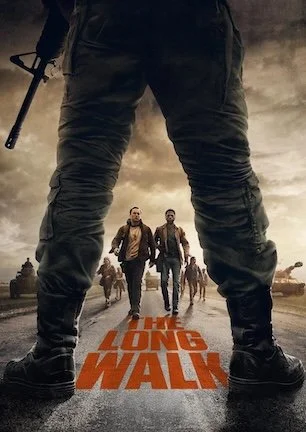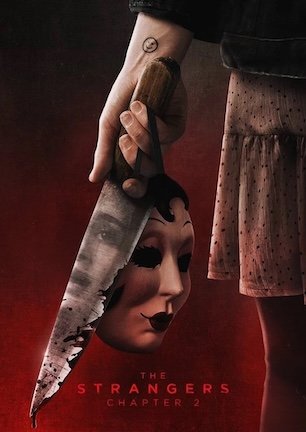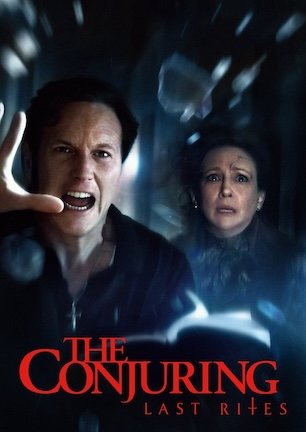Studio: Shudder
Director: Nathan Ambrosioni
Writer: Nathan Ambrosioni
Producer: Fabrice Ambrosioni
Stars: Nathalie Couturier, Remy Jobert, Vanessa Azzopardi, Julien Croquet, Luna Belan, Tania Rieu, Julie Venturelli, Shelley Ward, Cedrick Spinassou, Fabrice Raspati
Review Score:
Summary:
Two detectives examine footage found in an abandoned house that may be a clue to a series of murders and missing persons.
Review:
Unless you intend to explore an idea such as how Ridley Scott’s male worldview may filter “Thelma and Louise’s” female focus, or to examine the influence of a director’s culture on themes in his/her movies, it’s otherwise poor form to unnecessarily reference gender, race, religion, etc. if it has no bearing on academically assessing a movie. The truly tone deaf may even assume they are encouraging when they are actually insulting with phrases like, “I can’t believe that was directed by a (fill in the blank)” or “not bad for a (blank).”
A similar consideration applies to age. But since seemingly every article about wunderkind French filmmaker Nathan Ambrosioni insists on a reminder of his youth, I feel it is fair game for a worthwhile mention here. Particularly because in this instance of his sophomore feature, awareness that Ambrosioni was only 16 during filming seems essential in understanding why “Therapy” is the rather green movie it is.
There’s a masked madman on the loose in an abandoned building. Steven has unknowingly taken his girlfriend Stephanie and a trio of young family members and friends on a quiet camping getaway nearby. One of those teens, Sebastien, is killing a second bird with the trip by recording the weekend for a class project.
The quintet is split when upsetting screams in the night compel four of the five to unwisely explore the building. Once inside, the crew is split once again as everyone discovers not only are they not alone, but they might not make it back out alive.
The “twist” to this tale of familiar “found footage” is that the family’s fate plays out in pieces over a traditionally-filmed parallel plot where police investigate the case. We see what happens in step with detectives Simon and Jane as they gradually review each recovered video. These two don’t know if they have murders or missing persons on their hands yet, though they soon learn there is more to this mystery than initially meets the eye.
Simon and Jane’s interludes finally have a payoff when they collide with the “found footage” storyline at the film’s conclusion. For the most part however, they are interrupting nuisances of little to no substantive narrative value.
Jane has one solo scene over her bruised shoulder of a motel room phone call with an abusive husband. That generic beat is basically all the backstory constituting her character. Simon isn’t even afforded that much development. The two detectives are hollow conduits acting as eyes and ears for an audience who doesn’t need assistance seeing or hearing.
As for the “found footage,” it’s mostly made up of routine derelict building atmosphere. A couple of creepy dolls. A room with a random wheelchair. Flashlight beams shooting shadows down cobwebbed corridors. If a TV was anywhere in sight, you can bet it would be tuned to static.
The movie doesn’t have a story so much as a suffocating series of standard scares. “Therapy” is an aggressive offender of overusing audio bumps and sudden jumps at an obscene frequency. They can work, but are so flat in context that after initially offering a startle, the moments fade and are forgotten.
As conventional as it all is, a lot of the eerie imagery is nevertheless unsettling. Something about screams and shouted names echoing from the dark in the distance is genuinely unnerving. Now if only the masked killer didn’t look like a cheap knockoff of Michael Myers, not even the good Nick Castle incarnation but the “Halloween 4” (review here) version mind you, “Therapy” would at least have the fright side of things zippered up.
By knowing Ambrosioni’s age, perhaps that unfairly influences perception of “Therapy.” Still, I can’t help but look at his film and both excuse it as well as criticize it for being something that might make more sense from a teenage mindset.
If for some reason you have a creative writing assignment lying around from your own high school days, take a peek and ask, “would this make a strong movie as is?” Knowing that its co-creator was only five-years-old is part of what gives the absurdity of “Axe Cop” its unusual charm. At 16 however, you’re playing on a less-forgiving middle-ground of being held to a higher standard, yet lack of life experience is unavoidably an impediment to realizing the full potential of a creative endeavor.
Ambrosioni probably hasn’t consumed enough material to recognize certain clichés as overplayed. In an imagination not yet filtered by adulthood, including too many twists and excessive standoff gunplay likely sounds exciting. A kid filming an ill-fated expedition into a former mental hospital and a detective dealing with divorce might feel like fresh ideas. To more seasoned tastes, all of this frankly plays like a whole mess of noise only a teenager would find original or intriguing.
None of that is meant to malign Nathan Ambrosioni. He created a professional feature film (his second) screened internationally and that’s an impressive achievement for anyone at any age. Yet while Ambrosioni shows natural instincts for constructing a cinematic presentation, what he has still to develop is the ability to adapt that aptitude into strong storytelling not overrun by exuberance. That can only come with more maturity.
Review Score: 55






It’s a better idea to lighten up on the outrage and enjoy “Predator: Badlands” for its high value as an action-intensive outer space adventure.